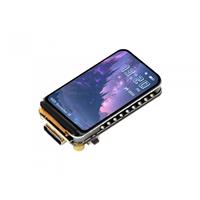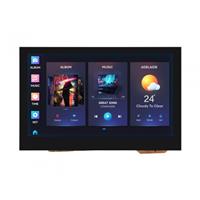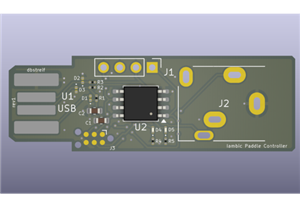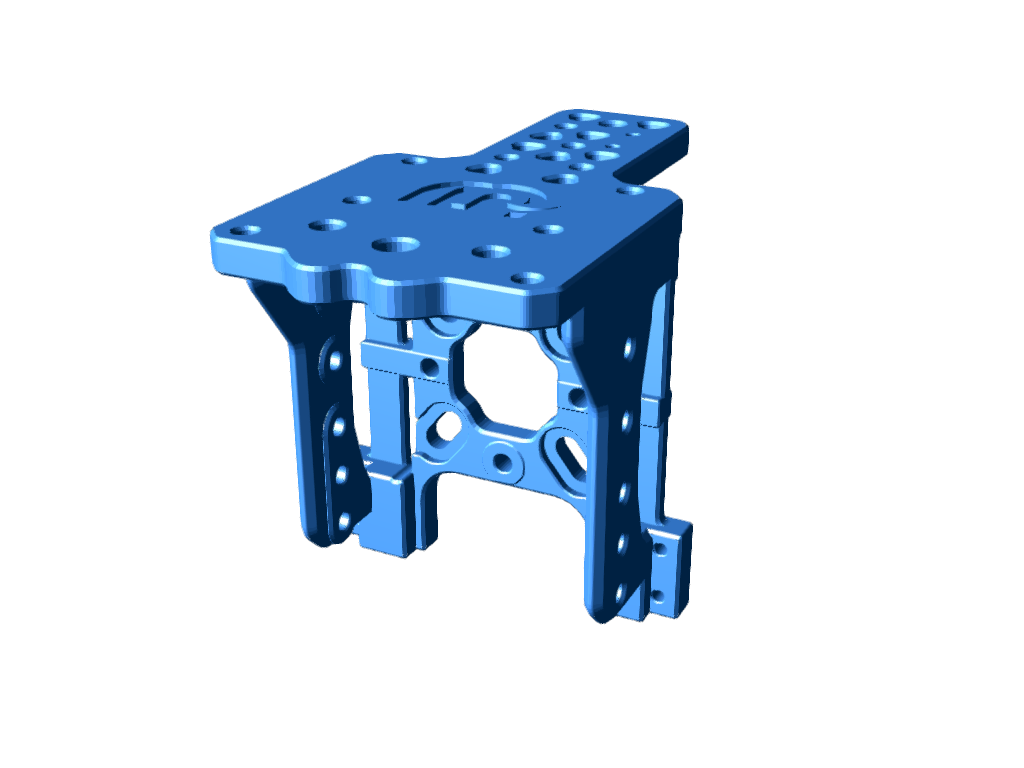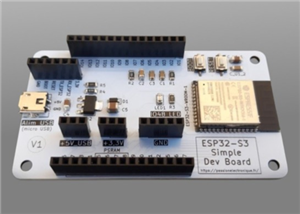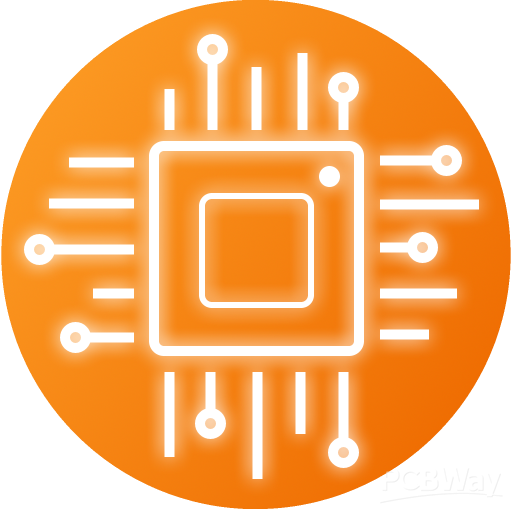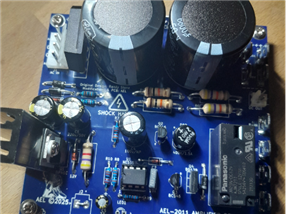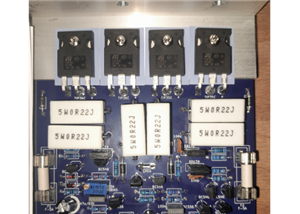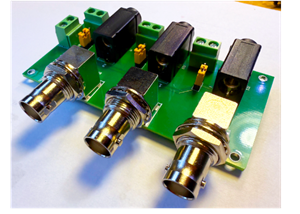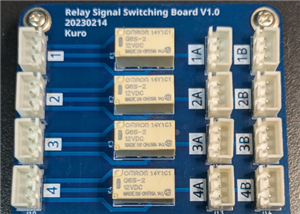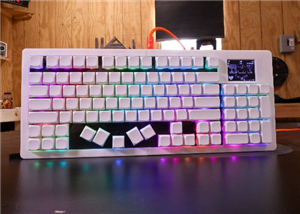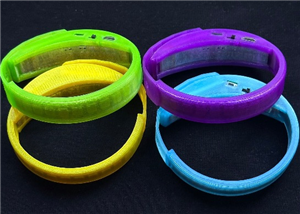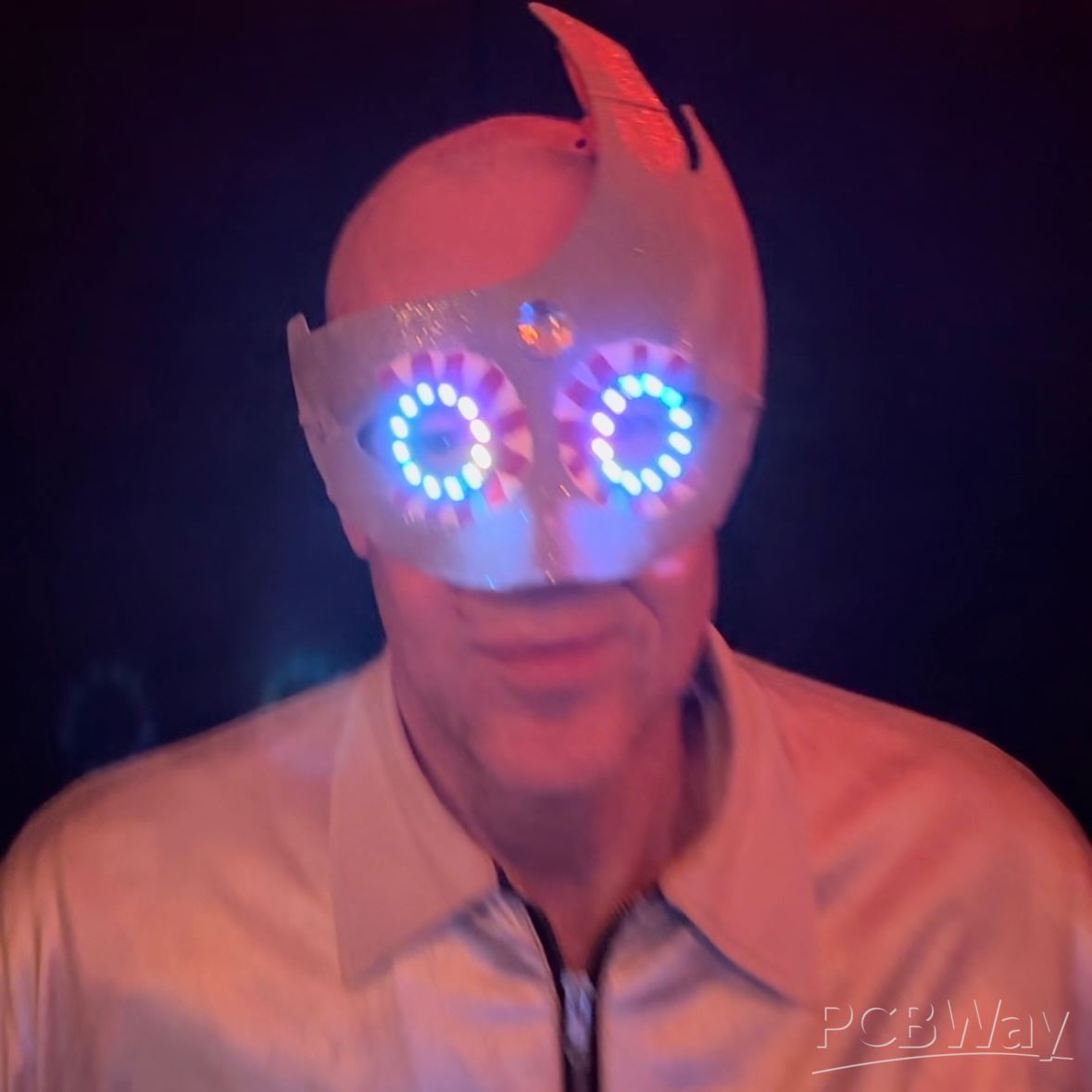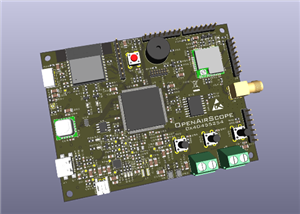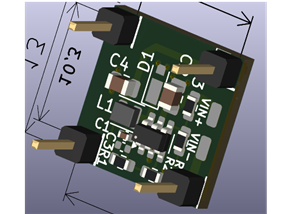
|
Arduino Nano V3 |
x 1 | |

|
WS2812B RGB Full Color LED Light Bar(black/60 lamps/meter) |
x 1 |

|
arduino IDEArduino
|
Talking CR Timer
The Story
Imagine working at the office from nine to five punching numbers in a computer the whole day...All you have to hold on to is your coffee break! Fortunatly, it is not that black and white for most people. We do have something in common though. There is a time that each and everyone of us needs to take a bathroom break. At some point, all the coffee we drink needs to leave the body, doesn't? So you are on your way to the comfort room as you where holding up every drip of coffee while finishing up that report. You're in a hurry because you 'need to go'... When you arive at the cr, you rush to open the door and you are about the enter 'the little zone'. But, what is that smell? My goodness, who burried there dead cat in here? That's really nasty!!!!
You get the picture right?
I had an artist sing a song about it for me. You can listen to see the video below...
If only there was a way for the previous visitor to leave a notice....
Well, There is now! This talking CR Timer. will indicate the level of 'danger' using some leds and on top of that, it plays funny sounds at each level. When the visitor is done doing his thing, one can press the button on the CR timer to give an indication of the 'danger' to however is visiting next. It's a timer, so it will count down. The level will automatically move doen a nutch, every three minutes until, after the lowest level of danger, it will shut down.
You Will need:
PCB ( assembled) --> Get it here <-- Or order your own pcb at PCBWAY, using the gerber files. (You will have to assemble it yourself)
BC547 transistor
Arduino Nano
String of 5 pixelleds ( WS2812 or simular)
A speaker
And SD Memory card
Battery or power supply 9V
To make a nice frontplate with the drawing provided you'll need:
A color printer to print the image file
a laminator and a laminate sheet to laminate the image.
a tool to punch holes in the front for the led and switch
Some wires to connect all
Glue and tape
A soldering iron to solder the connections
Power
The arduino Nano works on 5V power. Instead of using the onboard converter, I decided to use my own. U1 will convert the input voltage to 5V ( VCC ). However there is more to is then that. When the unit is first connected to power, the regulator U1 will not get powered because Q1 is not conducting. To conduct it, one needs to press the button SW1. This will set a positive voltage on the gate of Q2 and as a result, Q2 will start conducting . This will put a negative voltage on Q1 so that Q1 will start conducting and the regulator U1 will get an inputvoltage.
As soon as the button SW1 is released, Q2 will stop conducting and as a result so will Q1. However, if SW1 is pressed long enough, the arduino will boot up and it will make D5 high. ( Override) The override is connected to Q3 that will start to conduct to take over the function of Q2. Now SW1 can be released and Q1 wil keep conducting.
To switch off the regulator( and everything connected to it) the software in the arduino has to make D5 low.
At this point, the software is programmed to make D5 low when the timer is done or when SW1 is pressed longer then 3 seconds. SW1 is also connected to pin D6 of the Arduino to monitor when it is pressed.
SD Card Interface
Because the SD card workd on 3.3V, the 5V VCC is converted to 3.3V with U3. U2 us used to do some level switching from TTL(5v) to 3.3V for the data and clock lines.
Arduino and other stuff
U5 and U4 don't need to be assembled. I just make it a habbit to "break them out" on the PCB in case i need them in the future.
The Ledstrip ( WS2812 5 leds) can be connected to P1 while a speaker can be connected to CN4. The sound isn't very load. You can use an amplifier if you like to increase the volume but you might have to use a filter because the output signal comming from the transistor is a PWM signal.
All firmware and wav files etc. are on my github, linked below
Talking CR Timer
*PCBWay community is a sharing platform. We are not responsible for any design issues and parameter issues (board thickness, surface finish, etc.) you choose.
- Comments(0)
- Likes(0)
- 0 USER VOTES
- YOUR VOTE 0.00 0.00
- 1
- 2
- 3
- 4
- 5
- 6
- 7
- 8
- 9
- 10
- 1
- 2
- 3
- 4
- 5
- 6
- 7
- 8
- 9
- 10
- 1
- 2
- 3
- 4
- 5
- 6
- 7
- 8
- 9
- 10
- 1
- 2
- 3
- 4
- 5
- 6
- 7
- 8
- 9
- 10
 More by Mark Donners
More by Mark Donners
-
 Fast Audio Spectrum Analyzer
This design is nothing if not amazing! Imagine 3500 Colored LEDS dancing around to the music at a ve...
Fast Audio Spectrum Analyzer
This design is nothing if not amazing! Imagine 3500 Colored LEDS dancing around to the music at a ve...
-
 Classic Analog Spectrum Analyzer for Your Desktop
This is a spectrum analyzer that visualizes 10 audio frequency bands. Although it might look like ju...
Classic Analog Spectrum Analyzer for Your Desktop
This is a spectrum analyzer that visualizes 10 audio frequency bands. Although it might look like ju...
-
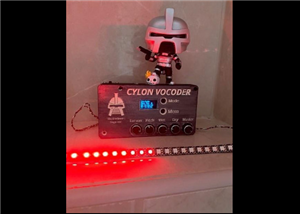 Cylon Vocoder wit Larson Scanner ( moving eye)
I'm a big fan of the TV series Battlestar Galactica ( BSG) and I love the robots called Cylons. The ...
Cylon Vocoder wit Larson Scanner ( moving eye)
I'm a big fan of the TV series Battlestar Galactica ( BSG) and I love the robots called Cylons. The ...
-
 Pico-Voice_PCB_Pico-Voice_2024-11-14
This is my pcb design for the Pico Voice changer. Software was written by Mike Cook and is open sour...
Pico-Voice_PCB_Pico-Voice_2024-11-14
This is my pcb design for the Pico Voice changer. Software was written by Mike Cook and is open sour...
-
 Gerber_Logo_PCB_Logo_2024-05-15
This is a youtube subscriber counter with audio playback and it has a dot matric spectrum analyzer w...
Gerber_Logo_PCB_Logo_2024-05-15
This is a youtube subscriber counter with audio playback and it has a dot matric spectrum analyzer w...
-
 Twin display pixelled Audio Analyzer
IntroductionThis Spectrum Analyzer project is nothing other than amazing. It includes a Teensy micro...
Twin display pixelled Audio Analyzer
IntroductionThis Spectrum Analyzer project is nothing other than amazing. It includes a Teensy micro...
-
 SPECTRUM ANALYZER WITH STEAMPUNK NIXIE LOOK
This is my version of a NIXIE tube lookalike Spectrum AnalyzerI created my own tubes using testtubes...
SPECTRUM ANALYZER WITH STEAMPUNK NIXIE LOOK
This is my version of a NIXIE tube lookalike Spectrum AnalyzerI created my own tubes using testtubes...
-
 Gerber_PCB_BatDetector
This is the PCB that goes with a video that will be published on the element 14 presents community
Gerber_PCB_BatDetector
This is the PCB that goes with a video that will be published on the element 14 presents community
-
 Talking CR Timer
The StoryImagine working at the office from nine to five punching numbers in a computer the whole da...
Talking CR Timer
The StoryImagine working at the office from nine to five punching numbers in a computer the whole da...
-
 Stereo Flyback Driver
This is my design of a stereo flyback driver. (ZVS) You can drive 2 flyback transformers to create a...
Stereo Flyback Driver
This is my design of a stereo flyback driver. (ZVS) You can drive 2 flyback transformers to create a...
-
 Russian Slayer Exciter PCB
This is my take on the Russian Slayer Exciter. The slayer exciter is an easy to build Tesla coil. A ...
Russian Slayer Exciter PCB
This is my take on the Russian Slayer Exciter. The slayer exciter is an easy to build Tesla coil. A ...
-
-
mammoth-3D SLM Voron Toolhead – Manual Drill & Tap Edition
169 0 0 -
-
AEL-2011 Power Supply Module
688 0 2 -
AEL-2011 50W Power Amplifier
584 0 2 -
-
-
Custom Mechanical Keyboard
786 0 0 -
Tester for Touch Screen Digitizer without using microcontroller
409 2 2 -
Audio reactive glow LED wristband/bracelet with NFC / RFID-Tags
372 0 1 -
-




















